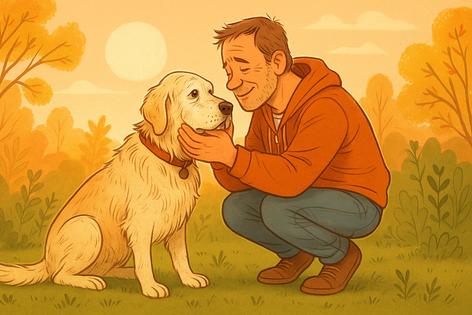Adopting an elderly dog can lead to a rich connection
Published in Cats & Dogs News
Adopting an elderly dog can be a deeply rewarding experience, but it also comes with unique challenges that require patience, compassion, and understanding. Unlike puppies or younger dogs, senior dogs often come with a full history—some of it unknown. They may arrive with health concerns, emotional scars, or habits formed over a lifetime. Because of this, they may need extra care, more frequent vet visits, and in some cases, medication or special diets. House training may need to be reinforced, and some older dogs might not be familiar with common household routines or commands.
Physical limitations can also play a role. An older dog might have arthritis, reduced vision or hearing, or trouble with stairs and long walks. Their energy levels tend to be lower, and they may sleep more or prefer calm, quiet environments. This can be an adjustment for new owners, especially those used to the playfulness and energy of younger pets. Patience becomes essential as both the dog and the adopter learn to trust and understand each other.
Despite these challenges, the rewards of adopting a senior dog are truly special. Older dogs often bond quickly and deeply, showing incredible gratitude and loyalty to those who give them a second chance. Many are already trained and have settled personalities, making them great companions for people who prefer a mellow, predictable pet. There is also something profoundly moving about giving comfort and love to an animal in its golden years, knowing that you're making their final chapter safe and full of care.
Senior dogs can teach us valuable lessons about resilience, acceptance, and unconditional love. While their time may be shorter, the connection can be just as rich—sometimes more so. Choosing to adopt an elderly dog isn’t just about saving a life. It’s about adding meaning and heart to your own.









Comments